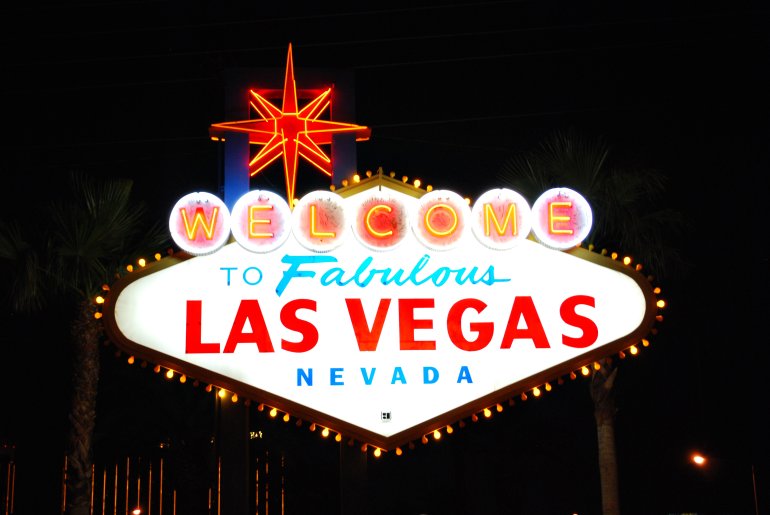
Las Vegas is known for its world-class casinos, where professional dealers run high-stakes games precisely and quickly. These dealers undergo extensive training to ensure games run smoothly, fairly, and according to strict house rules. However, like any job that involves rapid decision-making and handling money, mistakes can happen.
Dealer errors range from minor miscalculations in payouts to more serious mistakes that could affect the integrity of a game. When a mistake occurs, casinos have well-defined procedures to ensure fairness while maintaining a positive gaming experience for players.
Correcting dealer mistakes is not just about protecting the casino’s profits—it’s also essential for upholding trust among players. A poorly handled error can lead to disputes, frustration, and even legal trouble. That’s why Las Vegas casinos have strict protocols in place to identify, correct, and learn from dealer mistakes while keeping games running smoothly.
Types of Casino Dealer Mistakes
Even the most skilled dealers can make errors during gameplay. These mistakes vary in severity, from minor miscalculations to errors that could impact the integrity of a game. Below are some of the most common types of dealer mistakes and how they occur.
Bet Payout Errors
One of the most frequent dealer mistakes involves incorrect payouts. This can happen in several ways:
- Overpaying a Player – The dealer mistakenly gives a player more than they are entitled to. This often happens when calculating complex odds-based bets in games like roulette or craps.
- Underpaying a Player – A dealer might miscalculate a winning payout, leaving a player short on their rightful winnings.
- Misidentifying a Winning Bet – Sometimes, a dealer may incorrectly declare a losing bet as a winner or vice versa.
Misdealing Cards
Card games require precision, and mistakes can occur in different ways:
- Exposing a Card – In games like blackjack or poker, revealing a card unintentionally can disrupt the game and require adjustments.
- Dealing in the Wrong Order – In some cases, a dealer may accidentally skip a player or deal out of sequence.
- Too Many or Too Few Cards – A dealer may accidentally deal an extra card or fail to give a player their full hand.
Rule Misinterpretations
Dealers must strictly follow game rules, but misunderstandings can lead to mistakes, such as:
- Applying incorrect payout rules.
- Misunderstanding a side bet condition.
- Incorrectly enforcing a game’s action (e.g., in blackjack, failing to recognize a player’s correct hand signal for hitting or standing).
Chip Handling Mistakes
Chips represent real money, and handling them properly is crucial. Some common errors include:
- Miscounting a bet when collecting or paying out chips.
- Mistakenly taking a player's winning chips as a losing bet.
- Not properly stacking chips, leading to confusion or disputes.
Failure to Spot Cheating or Errors from Players
While most mistakes are unintentional, some players try to take advantage of dealer errors. If a dealer fails to catch:
- Past posting (placing a bet after the outcome is determined).
- Capping bets (adding chips to a winning bet after the result is known).
- Chip theft or sleight-of-hand tricks from other players (in games like poker).
The dealer’s oversight could result in financial loss for the casino or unfair play for other participants.
Correction Procedures
Las Vegas casinos have strict protocols in place to handle dealer mistakes efficiently while minimizing disruptions to the game. These procedures ensure that errors are corrected fairly and consistently, protecting both the casino and the players. The way a mistake is addressed depends on its nature and severity. Below are the key steps involved in correcting dealer errors.
Immediate Dealer Self-Correction
When a dealer realizes they’ve made a mistake, they will often attempt to correct it immediately. This is the fastest and simplest way to resolve minor errors, such as:
- A miscalculated payout that is quickly noticed.
- Dealing an extra card in blackjack and following the casino’s procedure for handling exposed cards.
- Misannouncing a winning number in roulette and correcting it before players collect their winnings.
If the mistake is obvious and no dispute arises, the game continues without the need for intervention from supervisory staff. However, if a player objects or if the mistake is more complex, additional steps are taken.
Pit Boss Intervention
If a mistake is not immediately corrected or if a player disputes the dealer’s decision, the pit boss (or floor supervisor) steps in. The pit boss oversees the tables in a designated section of the casino and has the authority to review and resolve errors. Common scenarios where pit bosses intervene:
- A player claims they were underpaid on a winning bet.
- The dealer misinterpreted a rule, such as paying out a losing blackjack hand.
- A misdeal in poker requires a decision on whether to continue the hand or reshuffle.
How pit bosses make a decision:
- They listen to both the dealer and the players involved.
- They verify the correct procedure according to house rules.
- If needed, they may order a review of the surveillance footage.
- Once a decision is made, they communicate it clearly to everyone at the table.
Pit bosses ensure fairness but also enforce house policies, so players may not always receive a ruling in their favor if the mistake is minor or not clearly verifiable.
Reviewing Surveillance Footage
For significant errors, such as disputes over large payouts or suspected cheating, casinos use their eye in the sky—a network of high-resolution cameras covering every gaming table. When surveillance review is required:
- A player claims they were shorted on a large payout.
- The dealer’s actions are unclear or disputed.
- The casino suspects a player is taking advantage of an unnoticed error.
Casino security teams can quickly review footage to verify the following:
- The exact bet placement before the result was announced.
- Whether a payout was correct.
- If a player manipulated chips or acted dishonestly.
If surveillance confirms an error, the casino will adjust the payout accordingly. If a player was caught taking advantage of a mistake, they may be asked to return money or even be escorted out of the casino.
Using Standard Error Protocols
Each Las Vegas casino has a rulebook detailing how different mistakes should be handled. Some of the most common correction protocols include:
Exposed Cards (Blackjack & Poker)
- If a dealer exposes a player’s hole card in blackjack, the standard rule is to continue the hand while offering the player options, such as hitting or standing.
- In poker, an exposed card in a misdeal usually results in a re-deal.
Misdeals in Poker
- If too many cards are dealt, the hand is declared void, and all bets are returned.
- If cards were dealt in the wrong order but no action has taken place, the dealer can correct the deal without disrupting the game.
Incorrect Payouts
- If a player was overpaid, the casino will request the return of excess chips.
- If the player has already left, the casino typically absorbs the loss unless security identifies the player and retrieves the money.
- If a player was underpaid, the casino will correct the mistake and pay out the proper amount.
Betting Errors
- If a dealer mistakenly accepts a bet after the outcome is known (such as a late bet in roulette), the bet is voided, and the chips are returned.
- If a player places an invalid bet (e.g., below the table minimum), the dealer will correct it before play continues.
Handling Large Overpayments or Underpayments
For smaller payout errors, dealers can usually correct them on the spot, but significant overpayments (such as a mistake in a high-limit baccarat or blackjack game) require a more formal process:
- If the overpayment is caught immediately, the dealer or pit boss will request the player to return the excess amount.
- If the player refuses, surveillance footage may be reviewed, and security may get involved.
While players aren’t legally required to return an overpayment, refusing could result in being banned from the casino.
- If a player is underpaid, the casino will correct the mistake after verifying the error.
- If a player has already left the table, the pit boss may try to locate them to issue the correct payout.
Dealing with Player Complaints
Players who believe they were wronged by a dealer’s mistake can escalate their complaint through several channels:
- Request a Pit Boss Review – The first step in any dispute is speaking with the pit boss. Most issues are resolved at this level.
- Ask for Surveillance Review – If the pit boss cannot resolve the issue, the casino’s security team may be asked to check the footage.
- File a Complaint with Casino Management – If the player is still unsatisfied, they can take their issue to higher management.
- Contact the Nevada Gaming Control Board (NGCB) – As a last resort, players can file an official complaint with the regulatory authority overseeing Las Vegas casinos. The NGCB investigates disputes and ensures that casinos operate fairly.
The following online casinos respond to players' complaints immediately.
| Casino | Withdrawal methods | Accepted currencies | |



+6
|
$, €, ₽, ₴ | ||



+3
|
$, €, R$, C$ | ||



+1
|
$, € | ||



+4
|
$, C$, zł, kr | ||
| — | — |
How Casinos Minimize Dealer Mistakes
While correcting mistakes is essential, Las Vegas casinos also take proactive measures to reduce errors in the first place. Given the high stakes involved in table games, casinos invest heavily in training, supervision, and technology to ensure dealers perform their jobs with precision.
Dealer Training and Certification
Every casino dealer in Las Vegas must undergo rigorous training before they can work at a gaming table. This training focuses on accuracy, speed, and adherence to game rules.
- Casino Dealer Schools – Many dealers start their careers at specialized training schools, where they learn the mechanics of various games, how to handle chips, calculate payouts, and interact with players.
- On-the-Job Training – Even after completing dealer school, new hires must go through in-house training programs where they work under supervision before dealing in live games.
- Testing and Certification – Dealers must pass practical exams that test their ability to handle bets, distribute cards correctly, and follow strict procedures.
Some casinos also require periodic retesting to ensure ongoing competence.
Real-Time Monitoring by Pit Bosses
Pit bosses oversee multiple tables at once, ensuring games run smoothly and intervening when mistakes occur. Their responsibilities include:
- Watching for payout errors and misdeals.
- Correcting any misinterpretation of game rules.
- Ensuring that all bets and winnings are properly handled.
- Monitoring player behavior for signs of cheating or angle shooting.
Pit bosses serve as the first line of quality control, ensuring that mistakes are caught and corrected before they escalate.
Surveillance and the “Eye in the Sky”
Las Vegas casinos use advanced surveillance systems to monitor all gaming activity. These high-resolution cameras cover every angle of the gaming floor and are crucial in both preventing and investigating dealer mistakes.
- Real-Time Monitoring – Security teams constantly watch the footage for irregularities, allowing them to intervene quickly if an issue arises.
- Instant Replay for Disputes – If a player or dealer disputes a payout or game decision, surveillance footage can be reviewed in minutes to determine what happened.
- Behavioral Analysis – Casinos track dealer and player behavior to spot patterns of mistakes, allowing for targeted training or investigation.
Technology-Assisted Accuracy
Casinos increasingly rely on technology to help prevent human errors, including:
- Automatic Card Shufflers – These devices ensure fair and random shuffling while reducing dealer handling errors.
- Chip Scanners and RFID Technology – Some casinos use RFID (Radio Frequency Identification) chips to track bets and prevent miscalculations.
- Digital Betting Terminals – In games like roulette, electronic betting systems reduce errors by recording bets automatically.
These innovations not only improve accuracy but also speed up gameplay, making the experience smoother for both dealers and players.
Dealer Rotation and Breaks
Fatigue can lead to mistakes, so casinos ensure that dealers work in structured shifts with regular breaks. A typical shift includes:
- Rotating to a new table every 30-60 minutes to prevent boredom and repetitive mistakes.
- Taking mandatory breaks to maintain focus and reduce stress.
- Supervisors checking in on dealers to ensure they are alert and performing correctly.
This rotation system helps keep dealers sharp, reducing the likelihood of errors.
Internal Audits and Performance Reviews
Casinos regularly review dealer performance through audits and evaluations. These reviews include:
- Spot Checks by Supervisors – Managers randomly observe dealers to ensure compliance with procedures.
- Player Feedback and Complaints – If a dealer receives multiple complaints, they may undergo retraining.
- Statistical Analysis of Errors – Casinos track error rates to identify problematic dealers who may need additional coaching or reassignment.
Continuous Dealer Training and Skill Improvement
Even experienced dealers must stay sharp. Many casinos require ongoing training, including:
- Refresher courses on game rules and payout calculations.
- Training sessions on handling disputes professionally.
- Updates on new technologies and casino policies.
By emphasizing continuous improvement, casinos ensure that their dealers maintain high levels of accuracy and professionalism.
What Players Should Do When They Spot a Dealer Mistake
Even with all the safeguards in place, dealer mistakes still occur. When a player notices an error, knowing how to handle the situation properly can make a significant difference.
Here’s a step-by-step guide on what players should do if they spot a mistake at a Las Vegas casino table.
Stay Calm and Observe
If you notice a dealer error—whether it’s an incorrect payout, a misdealt card, or an unnoticed bet—the first step is to remain calm. Reacting aggressively or accusing the dealer of wrongdoing can make the situation more complicated. Instead, take a deep breath and carefully assess what happened.
Did the dealer miscalculate a payout? Was a card dealt incorrectly? Was a winning bet overlooked? If you are unsure, avoid making a scene and instead discreetly double-check before bringing it up.
Politely Point Out the Mistake
Casinos value professionalism, and players are expected to be courteous when addressing concerns. If you’re confident that a mistake has been made:
- Politely call the dealer’s attention to the issue.
- Clearly explain what you believe went wrong.
- Avoid accusing the dealer of dishonesty—mistakes are usually unintentional. Example: "Excuse me, I believe my blackjack payout was miscalculated. I had a blackjack, and I was only paid even money instead of 3:2."
Most dealers will immediately check and, if they confirm the mistake, correct it on the spot.
Ask for the Pit Boss if Necessary
If the dealer does not acknowledge the mistake or seems unsure about how to handle it, the next step is to request the pit boss. The pit boss oversees table games and has the authority to review and correct errors.
Remain patient while they assess the situation. Explain your concern clearly and respectfully. Allow them to consult the casino’s rules or surveillance if needed.
Most minor errors are resolved quickly at this stage. However, if there is still a dispute, the casino may review surveillance footage.
Request a Surveillance Review
If the pit boss is unable to resolve the issue or disagrees with your claim, you can request a review of the security footage. Las Vegas casinos have high-resolution surveillance covering every gaming table.
The pit boss will determine if a review is necessary. If approved, the casino’s surveillance team will examine the footage to verify what happened.
Depending on the casino, the review process can take anywhere from a few minutes to over an hour. Players should note that casinos make the final decision based on their findings, and in some cases, they may rule against the player if there isn’t clear evidence.
Know When to Move On
While most genuine errors get corrected, there are times when a casino may not side with the player. If this happens:
- Accept the outcome and avoid escalating the situation.
- Consider whether it’s worth continuing to play at that table or casino.
- If the mistake was significant, you may file a formal complaint with casino management or gaming regulators.
Fighting over small amounts can ruin the enjoyment of the game. However, if you believe you were genuinely wronged, you do have options to escalate further.
Here are free online blackjack games.
| Name | Soft | Return to player | ||
|
|
99.78% | |||
|
|
99.69% | |||
|
|
99.65% | |||
|
|
99.6% | |||
|
|
99.59% | |||
|
|
99.54% | |||
|
|
99.54% | |||
|
|
99.54% | |||
|
|
99.33% | |||
|
|
98.55% |
Can Players Benefit from Dealer Mistakes?
While players are quick to call out errors that work against them, what happens when a dealer mistake benefits the player? Casinos have strict rules about handling these situations.
Dealer Overpays a Player
If a dealer accidentally pays out more than the correct amount, the casino expects the player to return the excess. However, the enforcement of this varies:
- If the mistake is noticed immediately, the dealer or pit boss will correct it.
- If the mistake is discovered after the round is completed, the casino may still request the excess payout to be returned.
- If a player knowingly pockets the extra money and surveillance footage later confirms it was an error, they may be asked to return it—or even be banned from the casino.
Some casinos have strict policies about overpayments and consider it a form of theft if a player intentionally takes advantage of a dealer’s mistake.
Dealer Fails to Collect a Losing Bet
If a dealer mistakenly forgets to collect a losing bet, players may wonder if they should point it out. Casinos generally operate on the principle that:
- If the mistake is caught before the next round, the dealer or pit boss will correct it.
- If the mistake is discovered later, it’s unlikely the casino will ask for the money back. Intentionally misleading a dealer to let an error slide can be considered cheating and result in penalties, including being barred from the casino.
Casinos rely on surveillance to catch repeated patterns of advantage play, so players who frequently capitalize on dealer errors may find themselves under scrutiny.
Ethical Considerations for Players
While some players take a “house rules” approach—where they accept favorable mistakes as part of the game—others prefer to maintain honesty. Ultimately, players should be aware that casinos have the final say on correcting errors, understand that excessive exploitation of mistakes can lead to consequences, and decide for themselves whether they want to play ethically or take advantage of errors.
What Happens to Dealers Who Make Too Many Mistakes?
Las Vegas casinos maintain strict performance standards for their dealers. While occasional mistakes are expected, repeated errors can have serious consequences. Casinos rely on a structured system to monitor dealer performance, provide corrective training, and, if necessary, take disciplinary action.
Immediate Feedback from Pit Bosses
When a dealer makes a mistake, the first response usually comes from the pit boss. Depending on the severity of the error, the pit boss may:
- Correct the dealer on the spot – If the mistake is minor (e.g., an incorrect payout quickly fixed), the pit boss may simply remind the dealer of the proper procedure.
- Give a warning – If a dealer makes repeated errors in a short period, they may receive a verbal warning to be more attentive.
- Temporarily remove the dealer from the table – If a dealer is making consistent mistakes, they might be replaced mid-shift and reassigned to another table or given a break.
Some casinos have systems where pit bosses track errors on a daily basis, logging them for performance reviews.
Performance Reviews and Retraining
If a dealer continues making mistakes over time, they may be required to undergo additional training. Casinos invest in their dealers, so retraining is often the first step before disciplinary action.
- Supervised retraining sessions – The dealer may be required to practice payouts, chip handling, or card dealing under the supervision of a senior dealer or instructor.
- Shadowing experienced dealers – If a dealer is struggling with a particular game, they may be reassigned to observe more skilled dealers.
- Written tests or proficiency evaluations – Some casinos require dealers to pass refresher tests on game rules and payouts before returning to the floor.
Retraining is often seen as a second chance, but if mistakes continue, casinos may take further action.
Penalties for Repeated Errors
When a dealer consistently makes mistakes despite retraining, the casino may escalate disciplinary measures. These can include:
- Formal warnings – Dealers who make frequent errors may receive written warnings, which are documented in their employment file.
- Demotion or reassignment – A dealer struggling with complex games like blackjack or roulette might be reassigned to an easier game (e.g., carnival games with simpler payouts).
- Reduction in scheduled shifts – Some casinos cut shifts for dealers with poor performance, reducing their opportunities to work.
- Probation periods – A dealer may be placed on probation, during which they must demonstrate improvement to keep their job.
Most casinos follow a progressive discipline approach, giving dealers multiple chances to improve before terminating their employment.
When Dealers Get Fired
If a dealer continues making costly mistakes despite training and warnings, they may be dismissed. Casinos consider the following when deciding to fire a dealer:
- Frequency of mistakes – A dealer who consistently mispays players or mishandles chips is a liability.
- Type of mistakes – Small errors are one thing, but major blunders (such as exposing cards in blackjack or misdealing in poker) are taken more seriously.
- Player complaints – If multiple players complain about a dealer’s mistakes, the casino may decide to remove them.
- Financial impact – If a dealer’s mistakes cost the casino significant money, they are more likely to be fired.
Unlike some jobs, being fired from a casino can have lasting consequences. Casinos share information, and a dealer with a poor record may find it difficult to get hired elsewhere in Las Vegas.
Can a Dealer Be Accused of Cheating?
In rare cases, repeated mistakes may be investigated as intentional cheating. Casinos are highly alert to the possibility of collusion between dealers and players.
If a dealer consistently overpays certain players, ignores losing bets, or shows signs of favoritism, they may be accused of working with a player to defraud the casino.
Such cases are taken very seriously and could result in termination, criminal charges, and being blacklisted from working in any casino.
The Role of Gaming Regulators in Dealer Errors
Las Vegas casinos operate under strict regulations enforced by the Nevada Gaming Control Board (NGCB). When dealer mistakes lead to disputes that cannot be resolved internally, gaming regulators may step in.
When Players File Complaints with Gaming Regulators
If a player believes they were unfairly treated due to a dealer mistake, they can file a complaint with the NGCB. The process typically involves:
- Filing a formal complaint – Players must provide details of the incident, including time, date, and table number.
- Investigation by regulators – The NGCB may review casino surveillance footage and interview employees.
- Casino response – The casino has a chance to defend its decision and provide its own evidence.
- Final ruling – The NGCB will decide whether the player is owed compensation or if the casino acted correctly.
While most disputes are resolved internally, this regulatory oversight ensures fairness in the gaming industry.
Compliance Audits and Dealer Performance Monitoring
Gaming regulators also conduct audits to ensure casinos handle dealer errors fairly. These audits include:
- Checking how casinos track dealer mistakes – Regulators review casino policies to ensure fair dealer evaluations.
- Ensuring fair resolution of disputes – If a casino consistently refuses to correct dealer mistakes, it may be fined or warned.
- Monitoring payout accuracy – Regulators check that casinos follow standard payout rules and do not exploit errors to underpay players.
Here are several quality online casinos.
Conclusion: The Balance Between Human Error and Fair Play
Dealer mistakes are an inevitable part of live casino gaming. Las Vegas casinos work hard to minimize these errors through training, supervision, and technology, ensuring that mistakes do not impact the fairness of the games.
Players who encounter dealer errors should remain calm, follow proper dispute resolution procedures, and understand their rights.
Meanwhile, dealers must maintain a high level of accuracy or risk facing penalties, retraining, or even job loss.
Ultimately, casinos, players, and regulators all play a role in ensuring that the gaming experience remains fair and enjoyable, even when occasional mistakes occur.









































